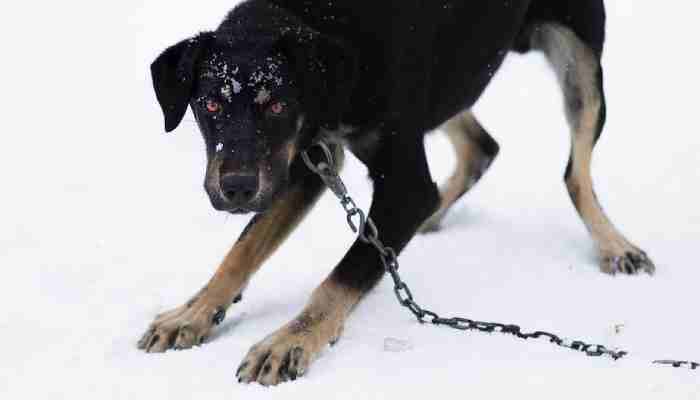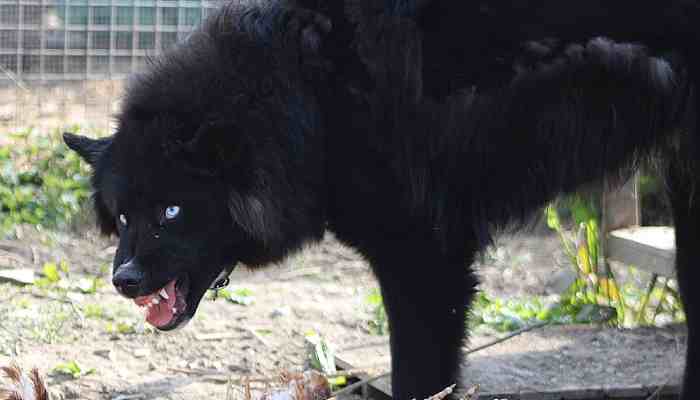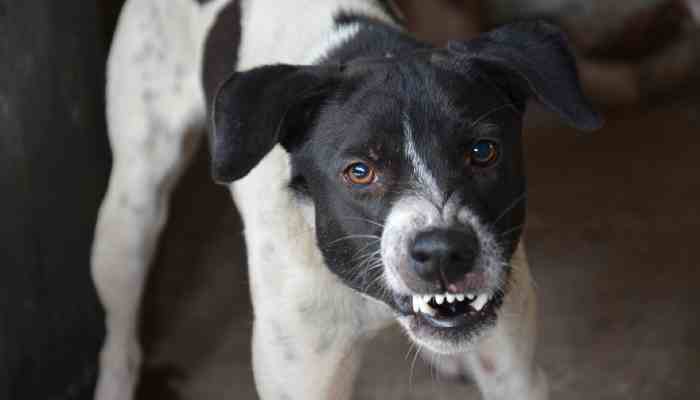Are aggressive behaviours in dogs due to nature or nurture? While environmental factors such as poor socialization, abuse, and neglect can contribute to aggressive behaviour, genetics also plays a crucial role. Understanding the genetic basis of aggression in dogs is essential for preventing and managing aggressive behaviour in our furry friends. In this article, we will explore the latest research on the genetics of aggressive behaviour in dogs, including the heritability of aggression, identifying genetic markers for aggressive behaviour, and the impact of early life experiences on gene expression and behaviour. So, buckle up, and let’s dive into the fascinating world of dog genetics and aggression!
I. The Genetics of Aggressive Behaviour
Aggressive behaviour in dogs is a serious concern for pet owners and society at large. While environmental factors play a role, genetics also contributes significantly to the risk of aggressive behaviour in dogs. In this article, we will delve into the genetics of aggressive behaviour in dogs, including the heritability of aggression and breeds with a higher risk of aggression.
Heritability of Aggression
Research has shown that genetics plays a role in aggressive behaviour in dogs. The heritability of aggression varies by breed, but some studies have estimated heritability to be as high as 50% in certain breeds. This means that aggressive behaviour in dogs can be passed down from one generation to the next through their genes.
Breeds with a Higher Risk of Aggression
Certain breeds are more prone to aggressive behaviour than others. For example, breeds like the Pit Bull Terrier, Rottweiler, and German Shepherd are often associated with aggressive behaviour. However, it’s important to note that not all dogs of these breeds will exhibit aggressive behaviour, and other breeds can also display aggressive behaviour.
Selective Breeding and Aggression
Selective breeding practices can also impact the risk of aggressive behaviour in dogs. Breeders may select for certain traits, such as high aggression, to produce dogs for specific purposes, like guard or protection dogs. While these practices can produce dogs with desired characteristics, they can also increase the risk of aggressive behaviour.
II. Genetic Markers for Aggression
Aggressive behaviour in dogs is a serious concern for pet owners and society at large. While environmental factors such as poor socialization and abuse can contribute to this behaviour, genetics also plays a crucial role. Identifying genetic markers for aggression can help predict which dogs are at risk for bad behaviour and potentially prevent aggressive incidents.
Identifying Genetic Markers for Aggression
Researchers have identified several genetic markers associated with aggressive behaviour in dogs. These markers are specific regions of DNA that can indicate a higher risk of aggressive attitude in certain dogs. By analysing a dog’s DNA, it’s possible to determine whether they have these genetic markers and therefore assess their risk of exhibiting aggressive behaviour.
The Use of Genetic Testing to Predict Aggression
Genetic testing for aggression in dogs is still in its early stages, but some companies offer tests that can predict a dog’s risk of hostile behaviour based on their genetic markers. The results of these tests can help pet owners make informed decisions about training and management, and potentially prevent aggressive incidents.
The Potential for Genetic Screening to Prevent Aggressive Behaviour
Genetic screening could also be used to prevent aggressive behaviour in dogs. By identifying dogs with a high risk of aggressive behaviour early on, breeders and pet owners can take steps to prevent or manage aggression before it becomes a problem. For example, breeders could selectively breed dogs with a lower risk of aggression, while pet owners could provide early socialization and training to prevent aggressive behaviour from developing.
III. Environmental Factors and Gene Expression
Aggressive behaviour in dogs can be influenced by environmental factors, such as early life experiences. The first few weeks of a puppy’s life can have a significant impact on their behaviour later in life. In this article, we’ll explore the link between early life experiences and aggression in dogs, and the impact of environment on gene expression.
Critical Period of Socialization
The critical period of socialization in puppies occurs between 3 and 14 weeks of age. During this time, puppies learn to interact with other dogs, people, and the environment around them. Puppies that are not exposed to a variety of people, animals, and experiences during this critical period are more likely to develop fearful or aggressive behaviour later in life.
Early Life Stress and Aggression
Stressful experiences early in life can also contribute to aggressive behaviour in dogs. Puppies that are separated from their mother and littermates too early or are exposed to traumatic events, such as abuse or neglect, are more likely to exhibit aggressive behaviour as adults. The stress of these experiences can impact the developing brain and result in long-lasting changes in behaviour.
The Impact of Environment on Gene Expression
Environmental factors can also impact gene expression in dogs. Studies have shown that environmental enrichment, such as providing toys, socialization, and exercise, can change the expression of genes related to behaviour and brain development. This means that providing a positive and stimulating environment for puppies can potentially reduce the risk of aggressive behaviour later in life.
Genetics play a crucial role in determining a dog’s temperament, and aggressive behaviour is no exception. Identifying genetic markers for aggressive behaviour can help us predict which dogs are at risk of exhibiting aggressive behaviour and potentially prevent aggressive incidents. While genetic testing for aggression in dogs is still in its early stages, it has the potential to provide valuable information for pet owners and breeders. By understanding the role of genetics in aggressive behaviour, we can work towards creating a safer and more responsible dog-owning society. It is important to remember that while genetics can influence a dog’s behaviour, environmental factors also play a significant role. Therefore, it is essential to provide a positive and stimulating environment for dogs and prioritize early socialization and training to prevent aggressive behaviour from developing.




